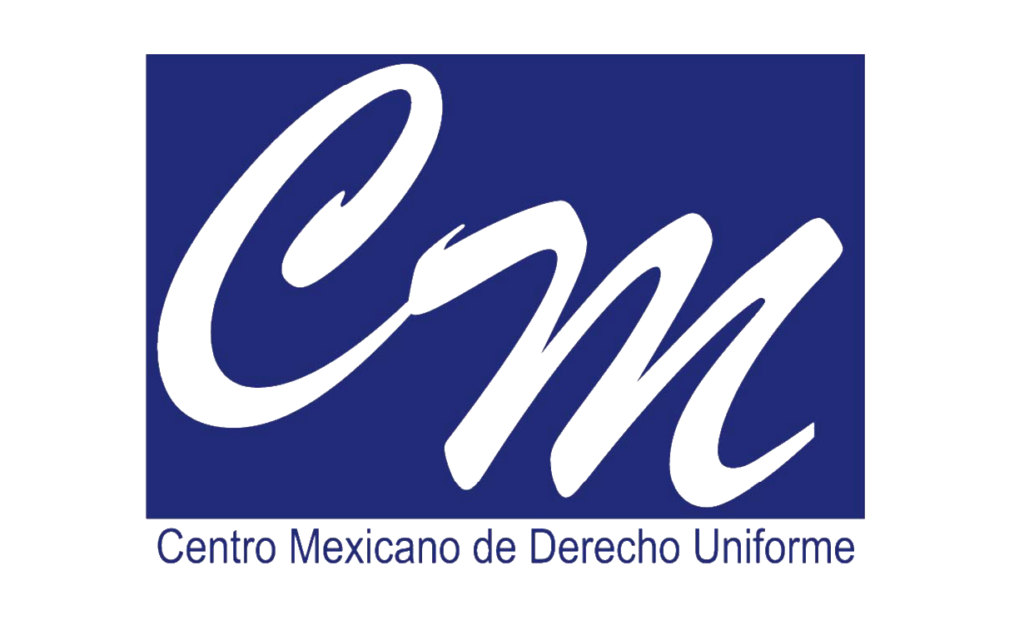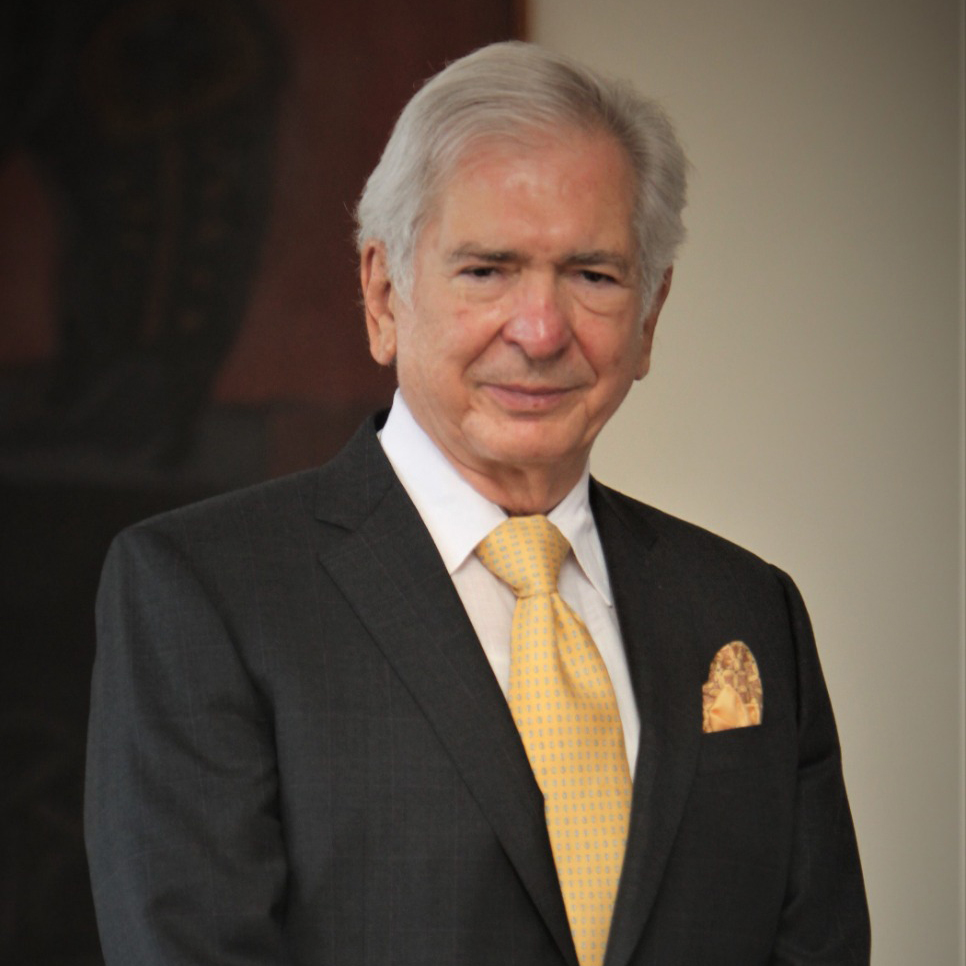
The Mexican Center of Uniform Law (MCUL) specializes in proposing uniform legal frameworks at national and international levels.
MCUL promotes legal harmonization to foster cultural unity by removing conflicts of law and ensuring consistent treatment of comparable cases. This approach reduces uncertainties and facilitates compatibility between national legal systems.
MCUL balances respect for national traditions with the integration of innovative legal principles, ensuring sustainable improvement of the law. The Center also prioritizes international uniformity in cultural heritage protection and actively collaborates with UNESCO and UNIDROIT to advance this critical mission.
Meet our team

Jorge Sánchez Cordero’s distinguished career spans multiple accolades and significant contributions to comparative law. He holds a German Bachelor’s diploma (Deutsches Abitur) and earned a Silver Medal from the National Autonomous University of Mexico (UNAM) and a gold medal from the Mexican Government as the nation’s top university student from 1969 to 1974. He graduated *Magna Cum Laude* with his Juris Doctor degree. He was an active member of the Comparative Law Institute, which later became the UNAM Institute of Legal Research, where he honed his expertise in comparative law methodology.
Sánchez Cordero was a key contributor to the drafting of the UNIDROIT Convention on Stolen or Illegally Exported Cultural Objects (Rome, 1995), for which he was elected Vice President by the Diplomatic Conference. His subsequent PhD thesis on this Convention earned him the prestigious mention of *très honorable avec félicitations du jury*. Over his career, Sánchez Cordero has been decorated with a Gold Medal by the Mexican National Institute of Fine Arts and Literature (2022) and a Silver Medal from the French Henri Capitant Association. The French government named him a *Chevalier* in the Ordre National du Mérite for his advisory role in human cultural heritage preservation. He also received honors from the Mexican National Institute of Anthropology and History for advocating cultural rights (2023).
A respected figure in legal scholarship, Sánchez Cordero holds an honorary position with the Royal Spanish Academy of Legislation and Jurisprudence and has been a full member of the International Academy of Comparative Law, where he served as Vice President from 2006 to 2014, receiving distinctions for his contributions to the field in 2022. He has served for over 30 years on the Governing Council of the International Institute for the Unification of Private Law (UNIDROIT), ultimately becoming its Dean in 2024, and he also chaired its General Assembly of National States (2020-2021).
As the Mexican government’s representative at numerous diplomatic conferences, Sánchez Cordero played influential roles in the ratification of critical conventions, such as the 1980 United Nations Convention for International Sales of Goods (Vienna CISG), and several UNIDROIT conventions (Ottawa, 1988; Cape Town, 2001; Luxembourg, 2007). He was appointed Emeritus Consultant to the Mexican Ministry of Foreign Affairs for his notable impact on international law.
A committed advocate for the protection of cultural heritage, he co-chaired the UNESCO/UNIDROIT committee on model provisions for State Ownership of undiscovered cultural objects His chairmanship of the UNIDROIT working group on cultural orphan objects underscores his dedication to advancing comparative law in the field.
Sánchez Cordero presides as *President Ad Honorem* of the Mexican branch of the Henri Capitant Association, is a member of the American Law Institute, and a fellow of the European Law Institute. He is active in the International Law Association (ILA) and the UNESCO-UNITWIN Network on Culture in Emergencies. He serves as a scientific member of the International Society for the Research of Cultural Heritage and Art Law (ISCHAL) and sits on the Board of Directors of the International Cultural Property Society. He was appointed First Vice President of the International Committee of the International Association of Legal Science (UNESCO).
In addition to being Director of the Mexican Center for Uniform Law and a Public Notary in Mexico City, Sánchez Cordero is one of the founders of the Mexican Federal Electoral Court and a member of the Scholars at Risk Board.
Author and editor of various books, including the translation into Spanish and the edition of “Les grands systèmes de droit contemporain” [The Great Contemporary Legal Systems] by René David and Camille Jauffret Spinosi, one of the highlights in Comparative Law.
He penned other books, among others: “Les Biens Culturels Precolombiens. Leur Protection Juridique” [Pre-Colombian Cultura Objects: Their Legal Protection] published at the Librairie Générale de Droit et de Jurisprudence in the prestigious collection of Jacques Ghestin; « Patrimonio cultural, Ensayos de Cultura y Derecho » [Cultural Heritage, Cultural and Legal Essays]; « El derecho y la Cultura » [Law and Culture]; “Entre Escila y Caribdis. Infortunios y Tragedias Culturales” [Between Scylla and Charybdis: Misfortune and Cultural Tragedies]; “Rupturas Culturales. Los grandes desafíos” [Cultural Ruptures: The Greatest Challenges]; “Las disfunciones culturales mexicanas” [Mexican Cultural Disfunctions]; “The 1970 UNESCO Convention, New challenges/ La Convention de l’UNESCO de 1970. Les nouveaux defis”. “La Inextricable Travesía del Acceso a la Cultura/ Ensayos sobre Patrimonio y Derechos Culturales”; [The Inextricable Journey of Access to Culture / Essays on Cultural Heritage and Rights”] “Pax Cultura”; “Amicus Curiae Culturale”; y “Funzioni e disfunzioni culturali del collezionismo. Italia e Messico; 150 anni di Relazioni diplomatique” [“Cultural functions and dysfunctions of collecting. Italy and Mexico; 150 years of Diplomatic Relations”.]
Several of them have been translated into different languages, including English, French, Russian, Mandarin Chinese, Japanese, and Arabic.
Jorge Sánchez Cordero continues to publish books and influential articles in Mexican and international journals, focusing on cultural heritage and comparative law.
